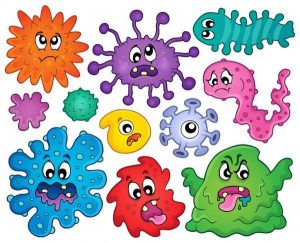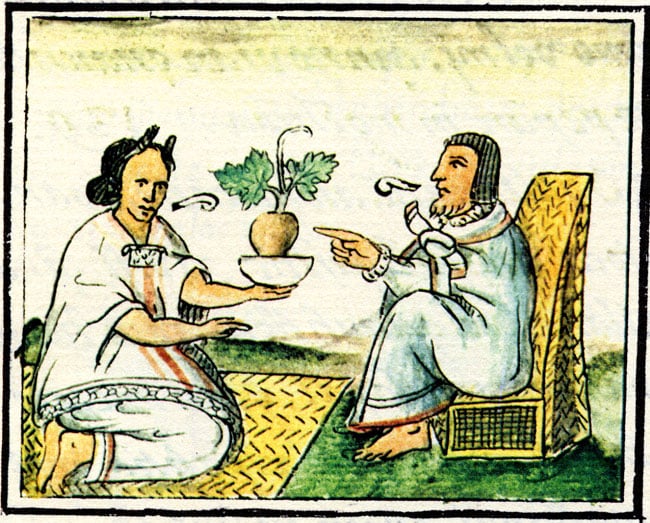 A reader asked that I write about what’s called, “Fecal Water Syndrome,” (or Free Fecal Water Symdrome) and, since it’s something that I’ve wondered about, ever since veterinary school – and it’s also something that I don’t really have a great answer for – I thought I could at least share some thoughts about this curious condition.
A reader asked that I write about what’s called, “Fecal Water Syndrome,” (or Free Fecal Water Symdrome) and, since it’s something that I’ve wondered about, ever since veterinary school – and it’s also something that I don’t really have a great answer for – I thought I could at least share some thoughts about this curious condition.
First off, you need to be aware of the meaning of the word, “Syndrome.” A syndrome is not really any sort of a diagnosis. Rather, a syndrome is a group of clinical findings which consistently occur together. So, for example, if you have a horse that’s lame, and you can place the lameness as occurring from the horse’s foot, and maybe you have some X-rays that aren’t up to what you think they should be, you can make a SWAG (“Scientific Wild A** Guess) that the problem may be with the navicular bone, and bingo, you’ve got “navicular syndrome.” To be honest, if you hear the term “syndrome” used in veterinary medicine – or any kind of medicine, really – fundamentally, it means, “We really don’t know exactly what’s going on but we do see it a good bit.” In medicine, it’s apparently important to call everything something, and the more syllables, the better.
But I digress.
In the case of Fecal Water Syndrome (let’s call is FWS because, in veterinary medicine, pretty much everything has to have an acronym), the group of clinical findings include:
- Green, watery liquid coming out along with the manure (before, after, or during)
- Green stains all over the hind end of the horse
- Some green, matted hair, usually around the underside of the tail
- An otherwise healthy horse
Right off the bat, I want to make sure you understand we’re not talking about a horse with diarrhea. Diarrhea is a problem that is not only messy, but also one that can often be serious. Horses with diarrhea are often pretty sick, and show signs such as colic, they may not be interested in food, and/or they may have a fever. These horses usually require immediate veterinary attention for problems such as intestinal infections, or, as is commonly seen in some areas, accumulations of sand in the intestines (to name a couple).
 Not so with FWS. These horses usually aren’t the least bit bothered by the squirts and drips that stain their hind end. Their owners, however, are generally tearing their hair out. So, as a result, veterinarians get to see such horses with some regularity. And, since we really don’t know the fundamental cause of all of this hindquarter greenery, there are lots and lots of recommendations on how the problem should be dealt with.
Not so with FWS. These horses usually aren’t the least bit bothered by the squirts and drips that stain their hind end. Their owners, however, are generally tearing their hair out. So, as a result, veterinarians get to see such horses with some regularity. And, since we really don’t know the fundamental cause of all of this hindquarter greenery, there are lots and lots of recommendations on how the problem should be dealt with.
NOTE: In general, if people understand a problem, and know how to deal with it, there’s usually one treatment that everyone does. If people don’t understand a problem, the sky is usually the limit. So it is with FWS.
Anyway, here are some the treatments that I’ve heard about (and there are likely a whole bunch more), along with their (pseudo)explanations.
SOMETHING’S WRONG WITH THE GUT BACTERIA

Gut bacteria (not a microscopic view)
Pretty much everyone knows that the horse has bacteria in his gut. When the road apples are coming out like, well, road apples, we generally assume that’s because the gut bacteria are normal, too. When the apples are presented in a green water bath, well, it’s at least reasonable to consider that something in the bacterial population isn’t what it’s supposed to be.
The problem with that theory is that we don’t really know enough about what goes on in the horse’s intestinal tract normally to be making bold assertions about what might be happening when things are a little off. In fact, there have been two studies that have that compared the bacterial population in the FWS syndrome horse’s gut to horses that weren’t staining their backsides green, and both of those studies showed no real differences between the two groups. CLICK HERE and CLICK HERE to see the studies.
 None of this makes any difference to people who are convinced that there must be some bacterial problem, of course. As a result, there are all sorts of supplements that can be dumped into these horses, as well as those probiotic products that are often recommended (with essentially no evidence of effectiveness). Of, there are the home bacterial remedies such as feeding horses fresh yoghurt (plain, although I’m pretty sure that other flavors would work, too), cultured buttermilk, or even buttermilk that has been allowed to sit out of the refrigerator for a while so that it can make even more bacteria. I’m not recommending any of this, of course – you should check with your veterinarian first – but if you do buy yoghurt or buttermilk, at least you can make biscuits or something.
None of this makes any difference to people who are convinced that there must be some bacterial problem, of course. As a result, there are all sorts of supplements that can be dumped into these horses, as well as those probiotic products that are often recommended (with essentially no evidence of effectiveness). Of, there are the home bacterial remedies such as feeding horses fresh yoghurt (plain, although I’m pretty sure that other flavors would work, too), cultured buttermilk, or even buttermilk that has been allowed to sit out of the refrigerator for a while so that it can make even more bacteria. I’m not recommending any of this, of course – you should check with your veterinarian first – but if you do buy yoghurt or buttermilk, at least you can make biscuits or something.
NOTE: CLICK HERE for a recipe for buttermilk biscuits that you might find helpful in case you need to get rid of some leftovers if buttermilk doesn’t work.
 HE NEEDS HIS TEETH FLOATED
HE NEEDS HIS TEETH FLOATED
The idea here is that if the horse isn’t chewing up his feed “properly” it’ll make him have diarrhea, so he may need to have his teeth floated. Unfortunately, that’s been studied, and angles of the chewing teeth that varied between 6 degrees and 19 degrees didn’t do anything to affect feed digestibility, water balance, or fecal particle size in adult horses. German researchers found the same thing in 2016 (CLICK HERE to see the study). Otherwise stated, it’s probably not the teeth.
HE NEEDS TO BE DEWORMED
Probably not. Horses in the wild normally carry around a few parasites, and horses are generally not terribly bothered by them (which is one reason that deworming recommendations have changed so dramatically over the last 5 years or so). Watery poop is not usually a sign of a parasite problem anyway. Sure, check for parasites, just don’t expect that a tube of your favorite dewormer is  going to take care of FWS.
going to take care of FWS.
HE HAS AN INFLAMED BOWEL
This isn’t completely implausible – it’s just really uncommon. Inflamed intestines have been reported in horses – they are usually diagnosed by procedures such as a biopsy of the rectal mucosa (if you want this done, ask your veterinarian to do it, of course). The thing is, the signs of inflammatory bowel disease (IBD) are generally a lot more severe than just a bit of green water coming out of an otherwise healthy horse. IBD is usually a much more serious problem, and comes with problems like weight loss, real diarrhea, regular episodes of colic, poor performance, and swelling under the belly.
HE’S ALLERGIC TO HIS HAY (or some other feed)
This one makes some sense too, except for the fact that true feed allergies are almost unknown in horses. Sure, you can change the feed – and it’s easy to do – but you may not see much of a change in the green dribbles.
THERE’S SOME ISSUE WITH FIBER
 It’s pretty hard to come up with a diet that’s more fibrous than that of a horse. That said, in my experience, some horses with FWS do respond to changes in the composition of the forage. Here’s what I’ve seen:
It’s pretty hard to come up with a diet that’s more fibrous than that of a horse. That said, in my experience, some horses with FWS do respond to changes in the composition of the forage. Here’s what I’ve seen:
- Free choice hay can help, possibly because it keeps feed going through the system. The problem, of course, is that free choice hay is an excellent way to get a stabled horse fat. It’s far better to have a bit of green on your horse’s back legs than it is to let him get too fat, so if you want to try free-feeding hay to your horse, pay attention to your horse’s weight. Better a few poop stains that laminitis, or one of the many other problems associated with obesity.
- Add a bit more fiber. One easy way to do that is to add psyllium husk to the feed. Of maybe you could throw in a bit of straw (yes, horses eat straw, in fact, it’s fed in some countries, especially in cold winters).
- Change the fiber length. This one’s worked pretty consistently for me. For some reason, some horses with FWS get better when they are fed less long-stem hay. Hay can be easily replaced with hay pellets, which, of course, should be soaked in water before feeding, or with chopped hay.
HE NEEDS SOME MEDICINE
 One theory that used to be prevalent was that FWS horses had a protozoal parasite living in their gut. Without diving into microbiology (you’re welcome), protozoans can certainly cause intestinal problems in mammals, for example, there’s giardia, which can affect dogs, as well as unfortunate campers who drink infected water. However, in horses, nobody really thinks that FWS is a problem caused by protozoan parasites anymore.
One theory that used to be prevalent was that FWS horses had a protozoal parasite living in their gut. Without diving into microbiology (you’re welcome), protozoans can certainly cause intestinal problems in mammals, for example, there’s giardia, which can affect dogs, as well as unfortunate campers who drink infected water. However, in horses, nobody really thinks that FWS is a problem caused by protozoan parasites anymore.
Two anti-protozoal drugs have actually been tried in horses. One of them, iodochlorhydroxyquin (say that three times), used to be sold under the trade name of “Rheaform” but it’s been long off the market. The other anti-protozoal drug that’s been used for FWS is called metronidazole, which is, in fact, a first line treatment for giardia infections.
I’ve used both in horses. What’s really weird – considering that both drugs are anti-protozoal, and FWS isn’t thought to be caused by protozoa anymore – is that I’ve seen both medications stop horses with FWS from squirting: until they are taken off medication, that is. When FWS horses are taken off medication, the squirts usually come right back. Of course, you don’t want to give a horse any medication without advice from your veterinarian, but I’ve had way more luck with a permanent fix by doing feed changes than I ever did with the medications.
OTHER CAUSES
In 2016, a group of researchers in Germany looked into FWS. You can see the study if you CLICK HERE.
 As I mentioned before, the German researchers concluded that parasites and teeth weren’t associated with FWS, but they did find FWS was associated with:
As I mentioned before, the German researchers concluded that parasites and teeth weren’t associated with FWS, but they did find FWS was associated with:
- Horses being low on the pecking order of the herd
- Anxiety, e.g., when low pecking order horses were confined
- Geldings
- Paint horses
So, I guess that you should try to avoid anxious paint geldings that are low in the pecking order of the herd if your primary concern in FWS. That said, there are some really great Paint geldings out there (I don’t want to make any Paint breeders mad).
Anyway, I think it’s all pretty interesting and, fortunately, FWS doesn’t seem to be a serious health problem. It’s mostly just disgusting and messy. If it were my horse, I’d definitely check to see if there’s sand in the manure and I’d probably try to introduce some shorter-stemmed forage into the diet first. Work with your veterinarian, of course, but most of the time, things are going to be OK, albeit perhaps a bit greener than planned.
DON’T FORGET TO CHECK OUT MY LATEST BOOK, LOST TRADTITIONS: HORSES AND HORSE MEDICINE IN PRE-MODERN JAPAN. YOU CAN CHECK IT OUT IF YOU CLICK HERE.







